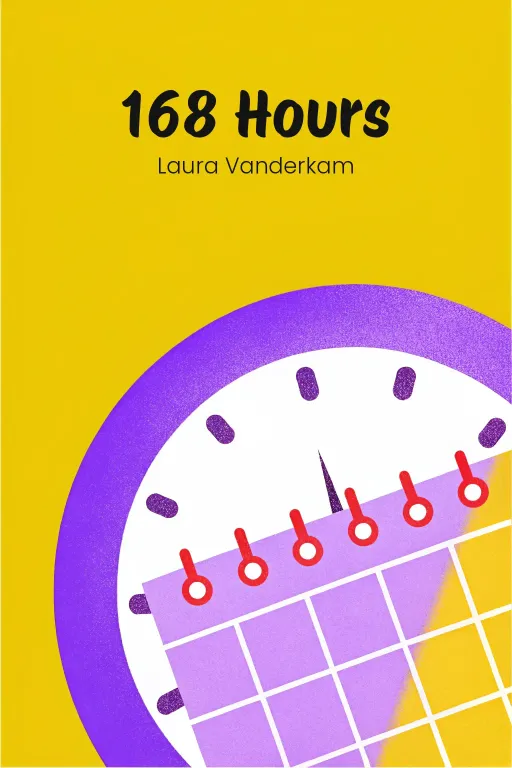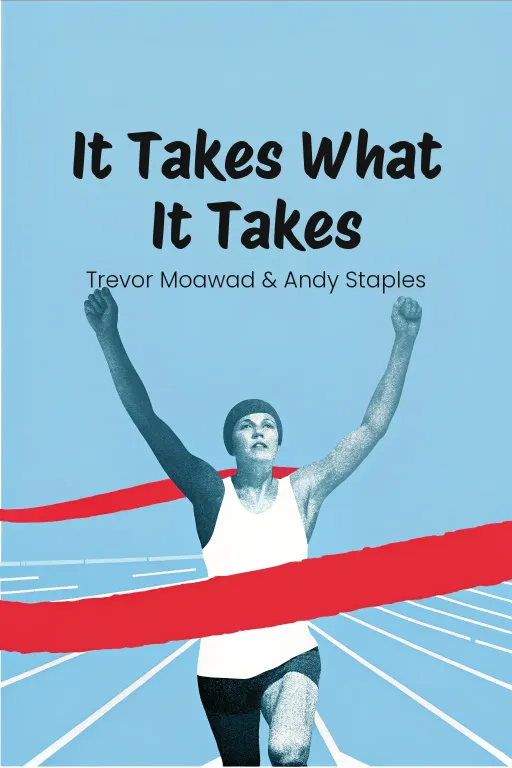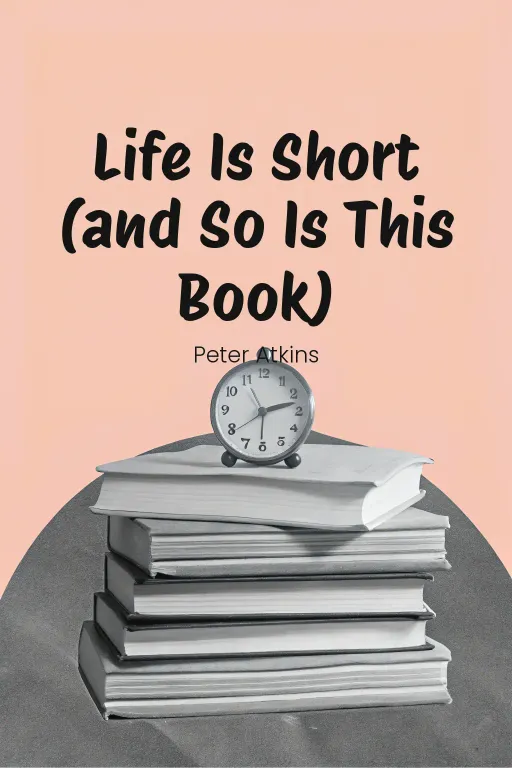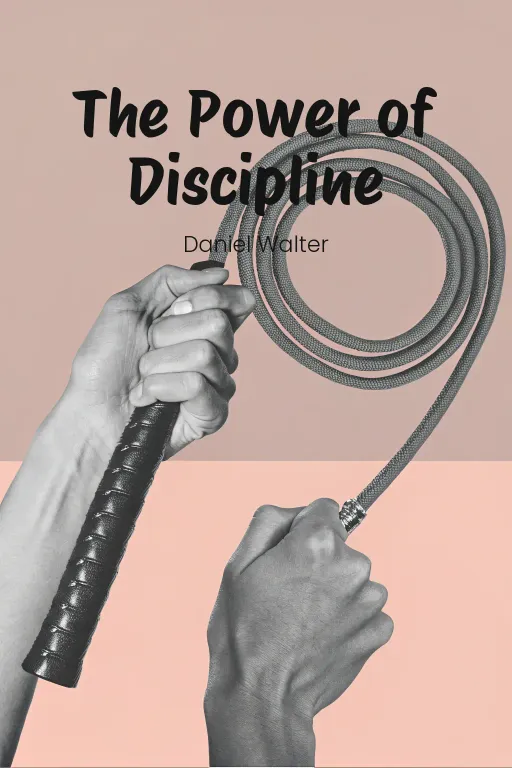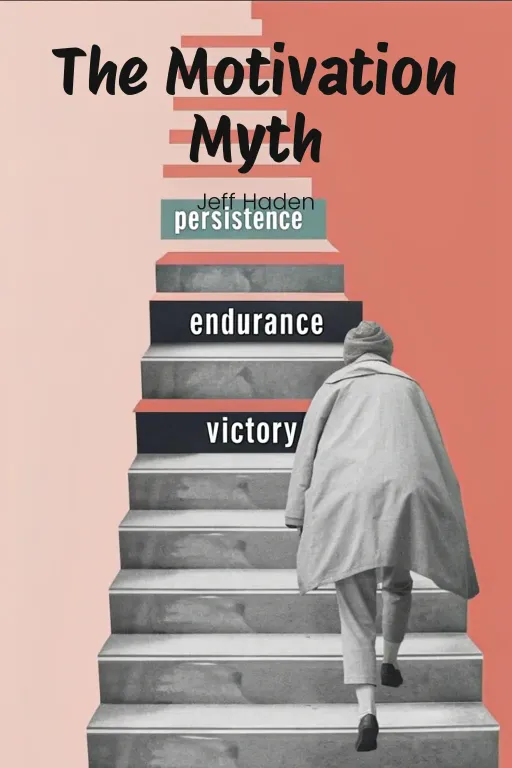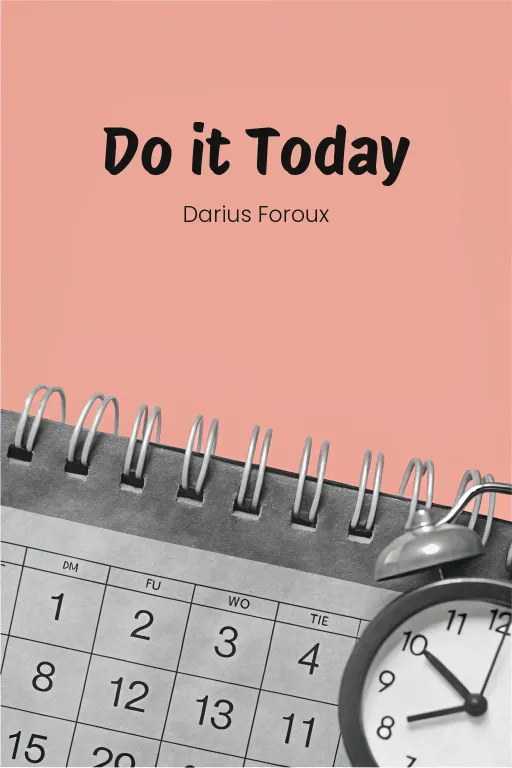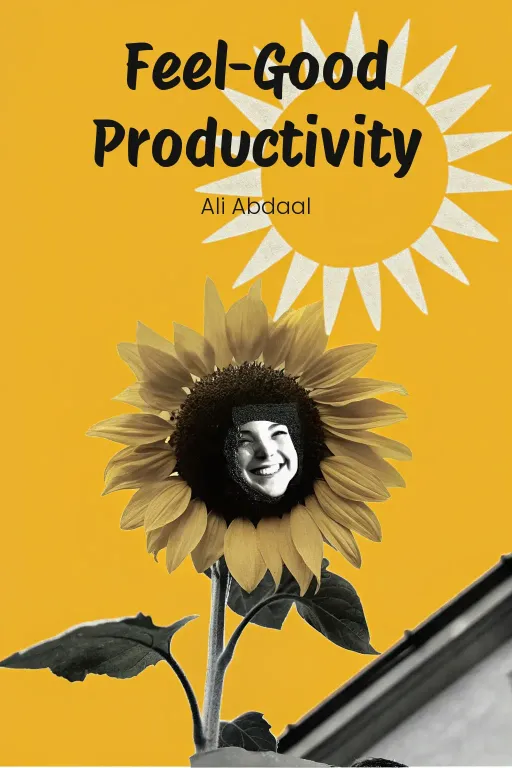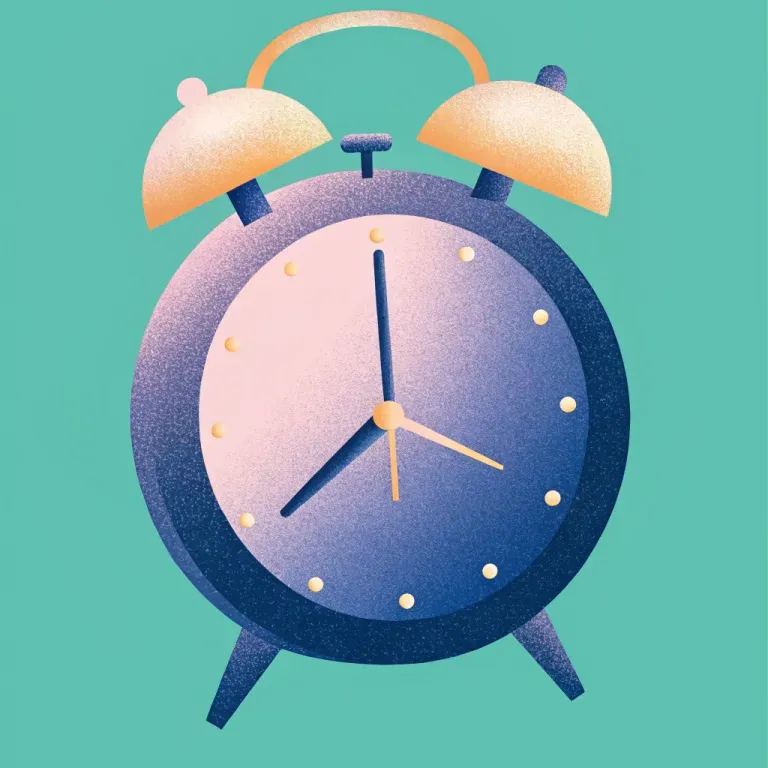
Crush Procrastination: Your Action Plan
Podcast by Beta You with Alex and Michelle
Overcome Procrastination, Improve Productivity, and Achieve More Meaningful Things
Introduction
Part 1
Alex: Hey everyone, welcome back! Today we’re diving into something I think we all struggle with: procrastination. You know, that little voice that whispers, "Later… I'll do it later," and then, poof, later never arrives. If that sounds familiar, you're in the right place. Michelle: Exactly. And let’s be real, there's no shortage of productivity gurus out there. "Just focus," "prioritize," "hustle harder" – we've heard it all. So, Alex, what makes Darius Foroux's approach in Do It Today actually different? Alex: That’s the million-dollar question, right? Well, this book cuts through the noise. It's not about quick fixes or motivational speeches. It's a concrete roadmap for building a life of action, tackling procrastination head-on, boosting efficiency, and making real progress toward those goals that actually matter. I really appreciate how practical and down-to-earth it is. No fluff, just actionable steps. Michelle: Okay, "actionable" as in... giving us real strategies? Like understanding why we put things off in the first place, building habits that actually stick, and seeing how small, consistent actions can lead to major results? Sounds promising. Alex: Precisely! In this episode, we're going to unpack three key areas. First, we'll dig into the hidden reasons behind procrastination and how to actually take control of your time. Second, we'll look at some productivity boosters, like intentional scheduling and minimizing those digital distractions that suck us in. And third, we'll talk about how to build long-term success by focusing on those tiny, consistent steps – because, let's face it, big achievements come from small daily wins. Michelle: Alright, so whether you're trying to break free from procrastination, boost your productivity, or just set yourself up for long-term success, stick with us as we unpack this guide to taking action... today.
Overcoming Procrastination
Part 2
Alex: Okay, so let's dive right into what causes procrastination, shall we? Foroux reframes it, arguing it's not simply laziness or poor time management. It's actually deeply rooted in psychology. He describes it as an internal conflict between our desire for immediate comfort and our longer-term goals. Michelle: Exactly, and it's so sneaky, right? Procrastination often comes disguised. We rationalize it by saying things like, "I'll start when I feel ready," or "That can wait until tomorrow." But really, underneath it all, there's usually some kind of fear—fear of failure, of not being perfect, or even just the discomfort of the task itself. Alex: Right. And Foroux uses his own experiences to illustrate this. Early in his career, he’d avoid the really important, needle-moving tasks, preferring to stay safe in his comfort zone. But that left him feeling stuck, frustrated, and just generally dissatisfied. The turning point for him was realizing that procrastination wasn't something external, but a choice he was making. Michelle: That's a “really” powerful realization. As he says, “You are in charge of your life.” But while it's easy to passively acknowledge that on paper, Alex, why do you think it's so difficult for people to “really” internalize the idea that procrastination is actually self-imposed? Alex: Well, Michelle, because it demands that you take ownership. Acknowledging you’re in control means you can't just blame external factors anymore. It's uncomfortable to admit that the thing holding you back is you. Foroux says that while this realization can be harsh, it's ultimately liberating because it puts both the responsibility and the power back in your hands. Michelle: That point about ownership reminds me of thinking about it like being a driver versus being a passenger, right? When you procrastinate, it’s like you’re just a passenger in your own life, blaming the traffic or the weather for where you end up. But when you take responsibility, you actually grab the wheel. Of course, driving is definitely harder and riskier, but at least you’re actually going somewhere on purpose. Alex: I love that metaphor. Because grabbing the wheel is scary, especially when the road ahead looks uncertain. But Foroux doesn't just stop at mindset shifts, does he? He also gives us actual tools to help us get moving. One of his signature techniques, as we know, is building momentum through small, consistent steps. Michelle: Ah, the the classic "baby steps" approach. So, what's the rationale behind starting small, and why does it actually work, Alex? Alex: It “really” boils down to behavioral psychology. When you're facing this huge, overwhelming goal, your brain gets intimidated and goes straight into avoidance mode. But if you break the big task into small, manageable steps? Suddenly, that feels achievable! Just completing one small task, like writing maybe five sentences or just tackling one section of a project, gives you this little surge of accomplishment which then creates momentum. Michelle: And once that momentum builds, it's like a snowball rolling downhill. I know some people might be skeptical and say, "Five minutes won't actually change anything." To those people, I'd point out Foroux's example of distractions like social media. Spending five minutes here and ten minutes there mindlessly scrolling might not seem that bad in the moment, but over the course of a day—or a lifetime—that adds up to hours wasted. It's the same with small wins, isn't it? They compound. Alex: Exactly. And here's the “really” important point: Foroux stresses that you must take control of your environment. He talks a lot about what he calls "distraction-proofing." This means creating spaces and setting up routines where procrastination “really” can't take hold. Like, you turn off notifications, put your phone in another room, and establish clear boundaries for when and how you engage with distractions such as the internet. Michelle: I appreciate the simplicity of that, though. He's saying to remove the temptation entirely instead of just relying on willpower, which, let's face it, is often running on empty. Alex: Exactly. You're setting yourself up for success by making the path to action as smooth as possible. And he doesn't stop there. Foroux also talks about the internal dialogue that fuels procrastination—the excuses, "I'm not “really” ready yet" or "It needs to be perfect." as we tell ourselves. He says these excuses aren't harmless—they're actually weapons that keep us completely stuck. Michelle: And that idea of excuses as weapons “really” hits hard, right? Foroux even gives us a way to disarm them: self-awareness. He says you should actively call out your excuses. If you catch yourself thinking, "I need to feel inspired to start,” just name that thought as an excuse and start anyway. It's genius. His advice to writers to write ‘bad drafts’ flips the whole excuse of “I’m not ready” into an opportunity to actually begin, regardless of how unprepared you think you feel. Alex: Yes, and his point about normalizing discomfort is so crucial. He's very clear that avoiding discomfort is at the root of procrastination. But once you start to see discomfort as a sign of progress—evidence that you are growing—it starts to lose its power over you. Michelle: Which that ties in so well with the Stoicism he weaves into this section. He challenges us to specifically focus on what we can control—our actions in this very moment. And to forget, just forget, about waiting for the “perfect time” or “ideal circumstances” because those won’t ever come. Progress “really” starts when you stop negotiating with procrastination and just act. Alex: That's where his structured daily habits make a difference, I think. He recommends beginning your day with the most important tasks—when you have the most energy—and dedicating specific, distraction-free time to do meaningful work. These habits serve as anchors, making each day purposeful, which “really” helps you avoid procrastination altogether. Michelle: And what’s so good is how these strategies build on each other. The mindset shift leads to small, consistent actions, which then lead to better habits and an environment that reinforces productivity. It’s not about grinding 24/7 or perfection; it’s about intentionality. Alex: Absolutely. And that brings us back to a central point in Foroux’s philosophy: that you actually do control your choices. Procrastination isn’t like some unstoppable force of nature—it’s a behavior that you can definitely shape. By cultivating awareness, momentum, and setting up a structure, we can transform procrastination from this huge barrier into an opportunity for growth.
Improving Productivity
Part 3
Alex: Once procrastination is out of the way, it’s all about boosting productivity with structure, isn’t it? Foroux's perspective is great—it’s not just about doing “more”, but doing the “right” things in the “right” way. Michelle: Exactly. From overcoming procrastination, now it's about really turning good intentions into real, consistent actions. Foroux dives into tactics like time-blocking, minimizing distractions, and understanding the difference between just being busy and actually making an impact. So, tools to help maximize focus, but without leading to burnout. Alex: Okay, so time-blocking first. Sounds simple—just plan your day in chunks—but Foroux actually says it can be transformative. Why is that? Michelle: Time-blocking does two essential things: it cuts down on decision fatigue and brings clarity. Thinking about decision fatigue first: all day, every day, we’re making choices, right? From small stuff like breakfast to bigger things like choosing your next task. All that decision-making drains your mental energy, and by the end of the day, you're often too tired to focus on anything that needs real brainpower. Time-blocking solves that by pre-planning your schedule. Then all you have to do is stick to your plan. Alex: Good point. It’s like having someone else—your past self—make all the decisions for you. So, what about the clarity part? How does knowing "this hour is for X" change how people work? Michelle: Well, if you know exactly what you should be working on at a specific time, it clears the mental clutter. Foroux talks about a writer who spends the first two hours every morning just drafting their book, then an hour on emails, then research in the afternoon. And that clarity allows them to just dive in without hesitating. And of course, over time, those chunks of effort really add up. Alex: I see how that stops the internal debate of, "What should I do next?". But, what about interruptions? What if life doesn’t let you follow your time blocks? Michelle: Foroux is pretty realistic about that. He knows life isn't perfectly predictable, but he stresses anchoring as much time as possible to your purpose. Even if the day doesn’t go perfectly to plan, consistently time-blocking keeps you from just drifting aimlessly and always gives you something to come back to. Plus, importantly, you can adjust the blocks, flexibility is fine, as long as you stick to your broader commitments. Alex: That sounds pretty reasonable, but, inevitably, distractions will creep in—your phone buzzes, someone calls or texts, the internet beckons. How do you fight those kinds of productivity killers? Michelle: Ah, and this is where Foroux really shines! He takes distractions seriously and makes the point that you can't just rely on willpower. You have to set up your environment so you can succeed. That’s things like turning off unnecessary notifications, putting your phone on "Do Not Disturb" when you’re trying to focus, maybe even physically removing devices from where you're working. Studies have shown that just having your phone nearby really hurts your concentration—even if it's on silent. Alex: It’s amazing how we underestimate how much proximity matters. He even suggests going further, like deleting social media apps from your phone entirely, right? Only using them on your computer at set times. That's pretty extreme. Michelle: Extreme, but clearly effective. It makes you use the devices deliberately, not mindlessly. Foroux says that doing those things himself—deleting apps, turning off notifications—gave him way more freedom and mental space. He was able to really get into deep work, knowing his environment wouldn’t keep pulling him away. Alex: Don’t forget his thoughts on multitasking—or really, not multitasking. People love to brag about being able to juggle a million things, but he says it's a myth. Switching between tasks actually makes you slower, not faster, right? Michelle: Exactly. Our brains just aren’t made to multitask well. When we jump around between things, we might feel busy, but we’re really being less efficient and making more mistakes. Foroux's suggestion is to give your full attention to one thing at a time, especially during your time blocks. When you really focus, you make your work faster and better. It’s a real case of less really being more. Alex: Okay, which fits nicely into my favorite part of the book: the difference between busyness and productivity. Why do we mix those up so often? Michelle: Well, partly it's how society conditions us. We think that being busy is the same as being valuable, so we pack our schedules tight or make endless to-do lists. But Foroux makes the important point that “busyness” often just hides a lack of focus. For example, someone might go to ten meetings in a day and feel like that's a lot of work, but if none of those meetings actually helps them reach their goals, they’ve just wasted time. Alex: Right, it’s like “motion” without “direction.” Reminds me of running on a treadmill—you’re working hard but going nowhere. Foroux suggests prioritization as the answer, is that right? Michelle: Definitely. That’s where self-awareness is key. He challenges people to look at their activities and really figure out what their time-wasters are, the things that look like work but aren’t really. Like, checking email constantly feels like work, but unless it’s really helping you move forward, it’s just noise. By choosing high-value tasks and cutting out the trivial stuff—or delegating it—you put your energy where it counts. Alex: That makes sense. Foroux also talks about optimizing your routines. Automating the low-value habits so you can save that mental energy for when you really need to make important decisions. Michelle: Exactly. He advises starting small when you’re optimizing routines. Creating morning rituals that align with your goals, for example. So, instead of jumping straight into emails, you spend the first hour on focused work. Over time, those kinds of routines build momentum and reduce that mental load of decision-making. Alex: It’s interesting how that ties back to his idea of clarity. By planning routines and time blocks in advance, you lose that gray area—not just about what to do, but about why you’re doing it. I guess that’s how effort turns into real impact. Michelle: Yeah, totally. And it’s all about being intentional. Structuring your life around your goals, so everything you do has a purpose. From mastering time-blocking and dealing with distractions to really knowing the difference between being busy and being productive, Foroux gives you the practical tools to turn everyday work into real, meaningful progress.
Achieving More Through Consistency and Belief
Part 4
Alex: Okay, Michelle, so now that we've talked about having the right tools, it's time to focus on bigger stuff, like reaching your goals and growing as a person. I love how Foroux expands on that in his book. It's not just about what you do every day, but also about being consistent and believing in yourself. Michelle: Exactly! It's fascinating how he transitions from daily habits to fostering lifelong consistency and belief. So, Alex, how does all of this tie together? Alex: Sure thing, Michelle. This part of the book really gives you the big picture, right? It’s not just about getting through your to-do list today. It's about building a life of lasting success by being consistent and believing in what you do. It also relates directly to improving gradually, practicing until you're a master, and changing fear into action. All of this is made possible by belief. Basically, it's how you reinforce everything we've talked about in the long run. Michelle: Right, and what really jumps out is this idea of consistency as a superpower. Everyone loves a big, sudden breakthrough, but Foroux says real success comes from the little things you do every day that add up over time. Can you give us an example, Alex? Alex: Definitely. Foroux compares it to an athlete preparing for a marathon. They don't run the full distance—26.2 miles—on their first day. They start with smaller distances, like a mile or two, and then they increase it each week. Improving gradually not only builds physical strength but also develops mental toughness. This principle applies to everything, whether you want to master a skill or just grow as a person. Michelle: Okay, that makes sense. But some people might find those small steps a bit… underwhelming, you know? Like, if you're trying to write a novel, writing just 200 words a day might not feel like much. Alex: I get that, Michelle. But that's where the magic happens. It's not about how small the step is, but how much those steps add up over time. Neuroscience actually supports this. When you repeat something, it strengthens the connections in your brain, which turns your actions into habits. Before you know it, those 200 words a day turn into a finished book. You just have to trust the process. Michelle: I see your point. But I’m sure some people might find all that repetition a bit boring. Foroux mentions that society often praises innovation more than discipline. But he argues that repetition, or mastering the basics, is the real key to long-term success. Could you explain that a bit more? Alex: Foroux talks about "mastery through repetition." He uses the example of Daniel Cormier, the UFC champion. He became a champion by practicing basic techniques like grappling and striking over and over until they became second nature. Those basics became his advantage because he perfected them. Paying that much attention to detail is what leads to mastery. Michelle: So, no shortcuts then? Just a lot of boring practice and slow progress? Alex: Well, "boring" might not be the best word for it. It’s more like repetition builds a foundation that frees up your mind for creativity and problem-solving. And it's not just for sports. Foroux himself rediscovered his love for writing by journaling regularly. It's about having solid fundamentals, not just flashes of brilliance. Michelle: Fair enough. Now, let's talk about something a little deeper: belief. Foroux really gets into the idea that belief isn't just wishful thinking, but that it's something you can act on. He says that a lot of his progress came from making courageous decisions instead of fear-based ones. What do you think about that, Alex? Alex: Oh, this is such a powerful part of the book. Foroux talks about how fear initially made him choose security over passion. He avoided risks and chose what seemed "safe." But then he realized that fear comes from thinking that there isn't enough to go around. Once he started believing in himself, he was able to be brave and pursue his passion for writing, even though it was risky. Michelle: I like that he connects belief to action. It's not enough to just sit around and dream about being successful. You have to face your fears and actually do something. Foroux mentions Wallace D. Wattles' philosophy of abundance, which says that instead of competing for limited resources, you create your own opportunities. So, how does that work in real life, Alex? Alex: It means shifting your focus from comparing yourself to others to contributing something yourself. When writers, entrepreneurs, or even athletes spend all their time worrying about what everyone else is doing, they get stuck in a competition. But if you have an abundance mindset, you ask yourself, "What can I offer that's unique?" That way, you stop trying to beat others and start creating something that stands out, which is a much healthier way to think. Michelle: That kind of thinking also ties into the long-term view that Foroux emphasizes, right? I got the impression that he's really encouraging us to be patient and to trust that consistent effort will eventually pay off. Alex: Exactly. He mentions Warren Buffett to illustrate this. Just like Buffett built his wealth gradually over decades, Foroux believes that life's progress is about improving your skills, relationships, and overall well-being little by little. Putting effort into one area can have a ripple effect and make other areas better too. Michelle: And Foroux also reminds us not to spread ourselves too thin. He warns against trying to pursue too many goals at once. Focusing on one or two core priorities at a time helps you make real progress. It's a smart approach, but it takes discipline. Alex: True. You need the discipline to stay focused, prioritize, and say "no" when necessary. Foroux also says that meaningful relationships are another area where consistency really pays off. Small, thoughtful actions, like showing appreciation and spending time together, build trust and support that can last for years. Michelle: Let's wrap things up with his idea of living as if you're "immortal." It sounds a bit strange, but I like how he explains it. He's saying that if you act with a long-term mindset, you'll avoid instant gratification traps and focus on integrity and purpose. Alex: I think that’s such a profound point. It reminds me of Michelleus Aurelius' philosophy: stop chasing after things that don't last. If you see life as a journey, then every action you take, no matter how small, contributes to a bigger purpose. It's a call to think beyond today and to live according to values that will still matter in the future. Michelle: So, basically, we're changing the way we think about success. It's not about big, dramatic actions, but instead, the accumulation of small, consistent actions that are based on belief and aligned with our long-term goals. Foroux breaks it down in a “really” simple way. But it requires a lot of deliberate practice.
Conclusion
Part 5
Alex: Okay, Michelle, time to bring this home. Today we really took apart Do It Today by Darius Foroux, didn’t we? We dove deep into procrastination, productivity, and how showing up consistently yields some pretty amazing long-term results. We talked about how procrastination isn't just being lazy, but more like a tug-of-war inside our heads between fear and actually doing something, and how taking ownership is really the first step to getting unstuck. Michelle: Absolutely. We also talked about how powerful time-blocking can be, and creating a distraction-free zone, so you can work smarter, not just harder. Foroux's emphasizing “cutting the busywork” and really zoning in on work that matters, that “really” resonated with me. Oh, and, of course, the idea that small wins, day after day, compound into major success over time – that’s the real secret weapon, isn't it? Alex: Totally. My biggest takeaway? Every huge success story is just the result of a ton of tiny decisions, all driven by discipline and, most importantly, belief in yourself. So, if procrastination, distractions, or fear are holding you hostage, just take one tiny step, today, that’s it. Michelle: Exactly! As Foroux puts it, progress doesn’t have to be perfect, but being consistent, now that’s key. So, to our listeners, start today, seriously. Ditch the excuses, grab the reins, and steer yourself towards something that matters to you. Alex: Thanks for tuning in, everyone! We hope this has lit a fire under you to act with intention – starting, well, right now. Catch you next time! Michelle: And one more thing – just one step. Seriously, it all adds up. Talk to everyone later!


